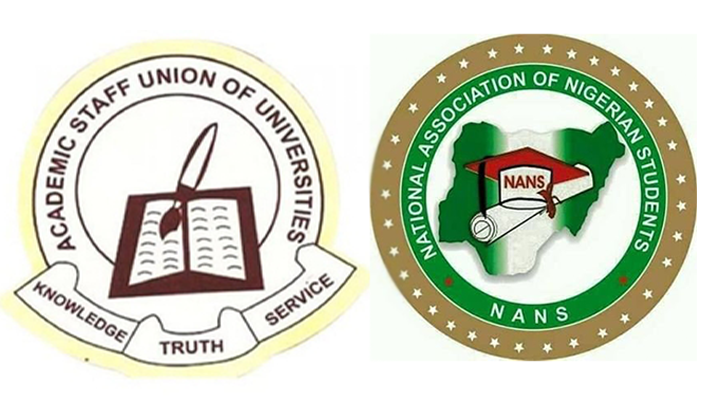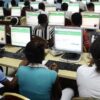“The budget proposed, which was 8.8 per cent, still fell short of the global education agency’s recommended 26 per cent expenditure on the sector.”
Key education stakeholders say the government at national and sub-national levels must give the much-needed attention and show sincere commitment to developing the education sector in 2024.
The stakeholders spoke against the backdrop of events that shaped the sector in the outgoing year and expectations for the new year.
Emmanuel Osodeke, the national president of the Academic Staff Union of Universities (ASUU), told journalists that no significant change was recorded in the sector in 2023, just like the past eight years.
He noted that the country needed much political will to turn the sector around to attain the much-desired accelerated growth and development.
“The budget proposed, which was 8.8 per cent, still fell short of the global education agency’s recommended 26 per cent expenditure on the sector,” said Mr Osodeke.
He added, “Oftentimes, these budgets, when passed, are hardly properly implemented. I hope we look at the sector holistically and x-ray the areas of concern in a bid to proffer solutions to them for a better Nigeria.”
The don urged the federal government to ‘walk the talk’ by ensuring that funds voted for key projects in the sector were implemented to achieve desired results.
“States, like Enugu for instance, have passed a 33 per cent budget for education in the state, and I would like to say this is historic. Abia and Oyo both passed 20 and 21 per cent, respectively, and I want to say this will be highly commendable if implemented,” Mr Osodeke said.
On his part, Akinteye Afeez, the senate president of the National Association of Nigerian Students (NANS), told journalists that education in 2023 had not fared as it ought to have done.
He said the sector is still the same, grappling with many avoidable issues.
“Education has not done any better than we used to have it. There is still no remarkable improvement in the sector as a whole; it has not changed from what was obtained in previous years.
“We just hope the policies of the government, as promised in 2024, will kickstart in earnest. An example is the CNG buses promised by the federal government, bursaries and increments in the education budget.
“We hope we have also really said goodbye to ASUU strikes and hope for better years ahead. But as far as we are concerned, education in the year under review did not fare well,” Mr Afeez stated.
On her part, a one-time Minister of Education, Chinwe Obaji, urged the federal government to pay more attention to the activities of some private and government-owned institutions in the country.
According to her, there is a need for the government to intensify its monitoring, supervision and evaluation efforts in schools across all levels of the country in a bid to achieve quality products.
“The most worrisome of them is the outrageous fees these schools tend to quote for these parents as amounts meant for the registration of public examinations such as the Senior School Certificate Examination by NECO and the West African Senior School Certificate Examination (WASSCE) by WAEC,” she said.
Ms Obaji also lamented that public school teachers abandon their duties for petty trading and other activities, urging, “All hands must be on deck to take the sector to its much-desired height.”
(NAN)


